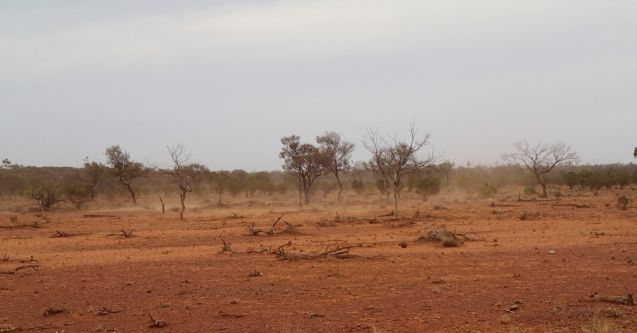Face-to-face care for farming communities
21 July 2014

In the past year, Salvation Army Flying Service Leader Captain Mark Bulow has driven 47,000kms, clocked up 200 flying hours, and visited 120 stations, providing care and support to struggling farmers.
Captain Mark Bulow, who is rural hub leader and Dalby Corps Officer with wife Captain Jo, has witnessed the staggering desperation of many farmers, rural businesses and communities after years of drought, flood and more drought.
He travels to communities in an area that extends west to the Northern Territory and South Australian borders, south to the NSW border and north to the small country town of Tambo in Queensland.
Captain Mark Bulow says the current drought conditions in many areas he visits are horrendous.
“The paddocks are just brown dirt, with dead animals everywhere. Farmers have had roos actually coming into their houses and dying because around the house yard is the only bit of green in sight. Or they have roos or stock that get bogged in almost empty water holes, then die and contaminate the remaining water.”
Captain Mark Bulow explains that even if the drought broke tomorrow, many farm businesses would still take years to recover. Many small businesses have already passed the point of no return, with farmers having to destroy or sell off stock at a loss, or significantly increase their debts.
As part of a farming family himself, Captain Mark Bulow says another challenge most farmers face is that even a good year brings nowhere near the returns it did a generation ago.
“If you talk to my wife’s dad, the price he is getting now for his grain is often close to the price he was getting nearly fifteen or twenty years ago,” he says. “So you have to do a lot more. You have to open ground, but that means using more seed and more fuel – and also more risk.”
He says he is blessed to have fellow chaplain and retired officer Major Ron McMellon working with him, plus a counsellor, to support struggling farmers and the businesses that rely on farming.
The service provides flood funds, food hampers and fencing supplies, and helps distribute drought relief. Service volunteers often visit with little baskets of hope,
providing small luxuries like shampoo, soap and toiletries that many can no longer afford to buy.
While material help is important, Captain Mark Bulow says offering a listening ear and spiritual and emotional support is also essential. Many farmers face depression, suicidal thoughts and relationship tensions. They also struggle with day-to-day life and isolation.
"Human interaction is essential to those living in remote areas,” he explains. “Although we live in a world that has the phone, internet, Facebook, Twitter and Skype, nothing can break the isolation of our vast country like a face-to-face visit.”
By Naomi Singlehurst
Comments
No comments yet - be the first.